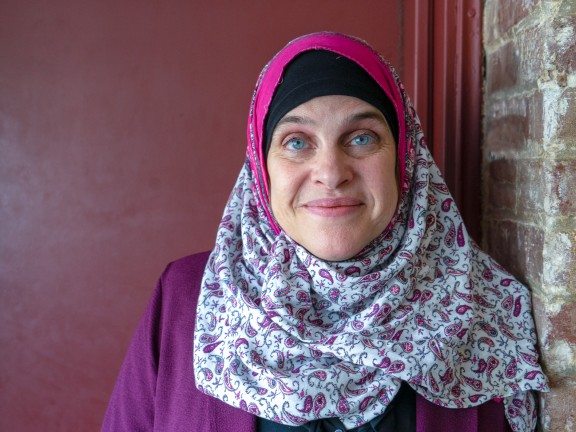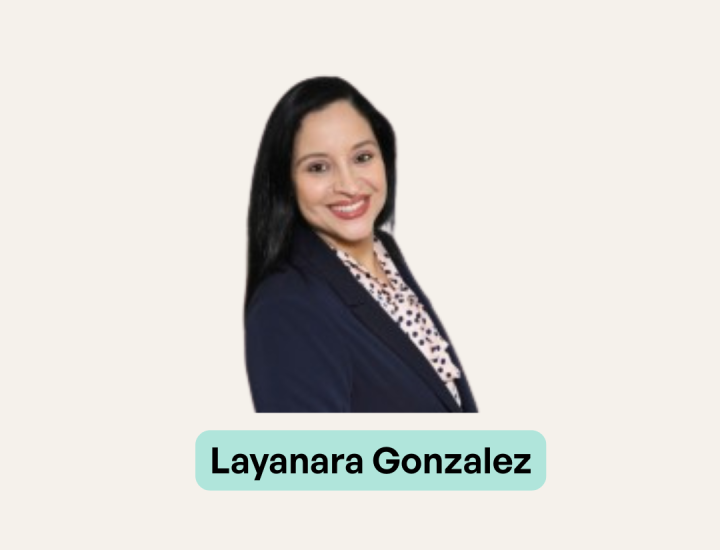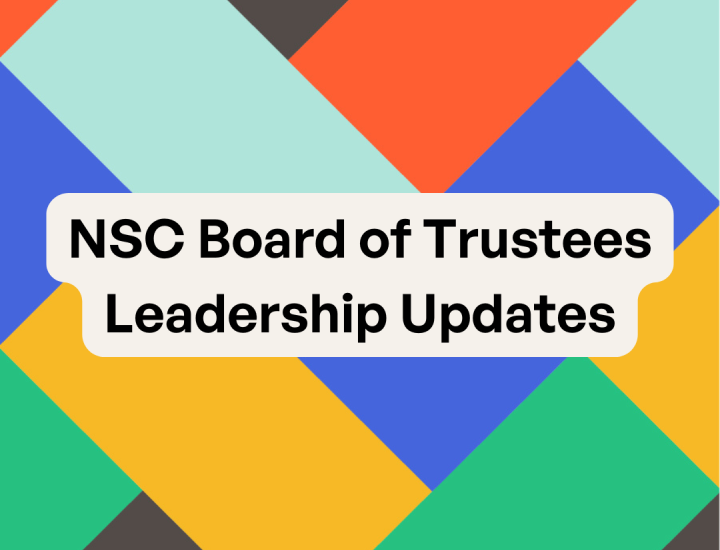Wellness Staff Highlight: Denise Ziya Berte, Ph.D

Most individuals in the process of immigration have also a background of some kind of trauma and for most it is a significant part of what they are dealing with upon arrival. They live with fearful memories and reminders on a daily basis and are sadly frequently not eligible for medical and mental health services to help them manage these symptoms.
In order to highlight the vital work, energy, and perspective that our staff bring to NSC, communications staff interviewed current staff members to showcase various programs. Read below for a Q and A with Denise Ziya Berte, a therapist in NSC's Wellness team.
Tell us a little bit about yourself and your background.
I grew up in the Philadelphia area and graduated from Upper Darby High School. I completed my bachelor’s degree in Psychology at Temple and my master’s and Doctorate at State University at Albany. I am the mother to eight amazing individuals most of whom are still in the greater Philadelphia area.
I have wanted to be a psychologist since I was eight years old and have been involved in Human Rights advocacy since about 12 years old. My career started along the border during the Central American crisis, where I coordinated a shelter as a part of the Sanctuary Movement for women and children escaping the war. My thesis looked at the psychological effect of the immigration process on asylum seekers escaping from the Central American Wars.
I later became the Director of the Liberty Center for Survivors of Torture here in Philadelphia for approximately 10 years and spent much of that time in West Africa (Liberia, Cameroon, Sierra Leon, etc.) working with communities struggling with war trauma and torture as well as supporting asylum seekers and refugees who had been survivors of targeted oppression and torture.
I am a Forensic Psychologists which means I use psychological evaluation to explain people’s behavior and reactions to court systems. I have worked in the documentation of Human Rights Abuses for the UN and several country specific Truth and Reconciliation processes (including Liberia and Guatemala) as well as serving as an expert witness in over 600 criminal, family and immigration court cases.
Most recently I spent six years in Palestine as the Clinical Director of the An Najah Child Institute serving children with neurodevelopmental disorders as well as trauma. I was a visiting professor at An Najah University which has the only Master of Clinical Psychology program in Palestine.
I am the author of over 17 journal articles and three book chapters related to trauma and immigrant mental health. I spend much of my time in presentations internationally to educate medical, legal and mental health professionals on both trauma and cultural competency.
How did you become involved with the Nationalities Service Center?
I first worked with NSC in my position with the Liberty Center for Survivors of Torture with the former LCFS as a partner in surviving our joint communities. When I was preparing to return to the area a friend found the position opening on-line and it felt like a perfect fit.
Could you talk a little bit about NSC’s Wellness Programming?
The Wellness Program at NSC provides a comprehensive set of unique services that assist our participants in emotional , social , and physical survival of their past and current experiences of trauma and targeted oppression. We serve participants from around the world who have lived through war, torture, human trafficking, domestic violence, and forced resettlement. The opportunities that NSC provides is a full range wellness agenda including fresh foods, yoga, reflexology, acupuncture, social connectivity groups for specific populations, field trips, art therapy and of course regular therapy.
When individuals arrive to the United States, they frequently have no access or resources to address their needs for rehabilitation and wellness. They are focused on obtaining safety through immigration documentation and economic survival. But their bio-social-emotional core as humans is frequently neglected despite the need for strength and health to achieve the other challenges and goals they face. The Wellness Program at NSC provides the chance for people to receive these needed services in a free easily accessible, culturally relevant and respectful manner that is critical but unavailable to them in any other setting.
What do you do in your role as a Therapist at Nationalities Service Center?
As a Therapist at NSC I meet with individuals to discuss their unique situations and support them in their transitional process. What I like to say is that I am assisting Superheroes to continue in their acts of greatness. The individuals served by NSC are amazing people and can serve to role models to us all. They have demonstrated courage, strength and incredible goodness in the face of circumstances that most of us cannot imagine. As their assistant I am privileged to support their journey to wellness with accompaniment, listening, offering guidance from evidenced based models in the field of trauma, and reinforcing the steps they take each day towards wellness as well as finding community supports for them whenever possible.
What are some common challenges immigrants and refugees face while adjusting to the United States?
What is important to remember is that no one leaves their home, language, job, family and safety without a compelling reason. Most individuals in the process of immigration have also a background of some kind of trauma and for most it is a significant part of what they are dealing with upon arrival. They live with fearful memories and reminders on a daily basis and are sadly frequently not eligible for medical and mental health services to help them manage these symptoms.
In addition, as family is the primary social unit in most cultures immigrating individuals’ members are often bearing the emotional, safety and economic responsibility for family members either traveling with them or left at home. Individuals often feel distress and guilt when they, in vulnerable situations themselves cannot provide safety for their families both here and abroad. Many of our participants are separated from their immediate families including spouses, children and parents who are in high risk situations, and cannot return due to their own personal risk. This conflict weighs heavily on the psychological well-being of our participants.
Lack of ability to communicate, find work, safe housing and loneliness are common issues inherent to immigration But also facing racism, being further victimized by crime in the United States, and fear of the current national climate in the United States is also an added challenge to our newly arriving neighbors in these days.
How does NSC address healing and mental health?
What I appreciate about working at NSC is that we offer a true spectrum of services that address wellness including legal services, health advocacy, case-management, housing, education, and the many other life sustaining needs that our participants face every day. It is impossible to offer wellness of psychological services in a vacuum, without attending to the basic needs of the individual including housing, food, and legal safety. At NSC work as a team to provide people with the full range of support they need to make a successful transition to life in the United States and healing from the wounds they carry with them.
What is the most fulfilling part of your role?
Everything… The biggest joy is being able to assist and share with individuals under threat on so many levels, who maintain the hope and belief that their lives will eventually have some peace and stability. Many of our participants were targeted for oppression and violence precisely because they were courageous enough to stand up for themselves and their communities in the face of injustice and racial, ethnic, religious and gender discrimination. It is truly a testament to their strength and resilience to see them re-establish themselves as leaders and regain their voices in a new circumstance despite all of the factors that can weigh them down and reduce their worth.
What are your hopes for the NSC’s Wellness Program in the future?
I would love to see the program expand and support diverse mental health professionals from our served communities so that individuals can receive assistance from professionals in their own language and within their own cultural contexts.
Increased geographical accessibility is another goal as we are aware that many of NSC clients do not live close enough to be served at out Center City office and we have the need to create satellite centers in areas that are underserved.
Having the opportunity to conduct community wide wellness and prevention programs so that the impact of the wellness services is greater and can impact those who cannot attend weekly sessions or do not identify themselves as needing help is also a personal goal
In addition, it is our obligation, not only to continue our work but to use our expertise as a role model to professionals around us by offering training and entering into partnerships with the wide range of systems and service providers that affect the lives of our participants when they are not with us including school districts, medical professional and local community mental health systems.
Outside of work, what are your interests and hobbies?
Travel, music, reading, dance and my connections to my varied cultural and faith homes take up most of my time. The sea is my spirt home and I get there as much as I can…wherever it may be.
What do you want folks to know more about NSC--the work we do, the clients we serve, and immigration services in general?
The strength of cultural and character of our participants are a great model for ourselves, our families and our nation. The work we do is not to provide charity but really to support the ideals, knowledge and experiences that these amazing superheroes bring to us.


